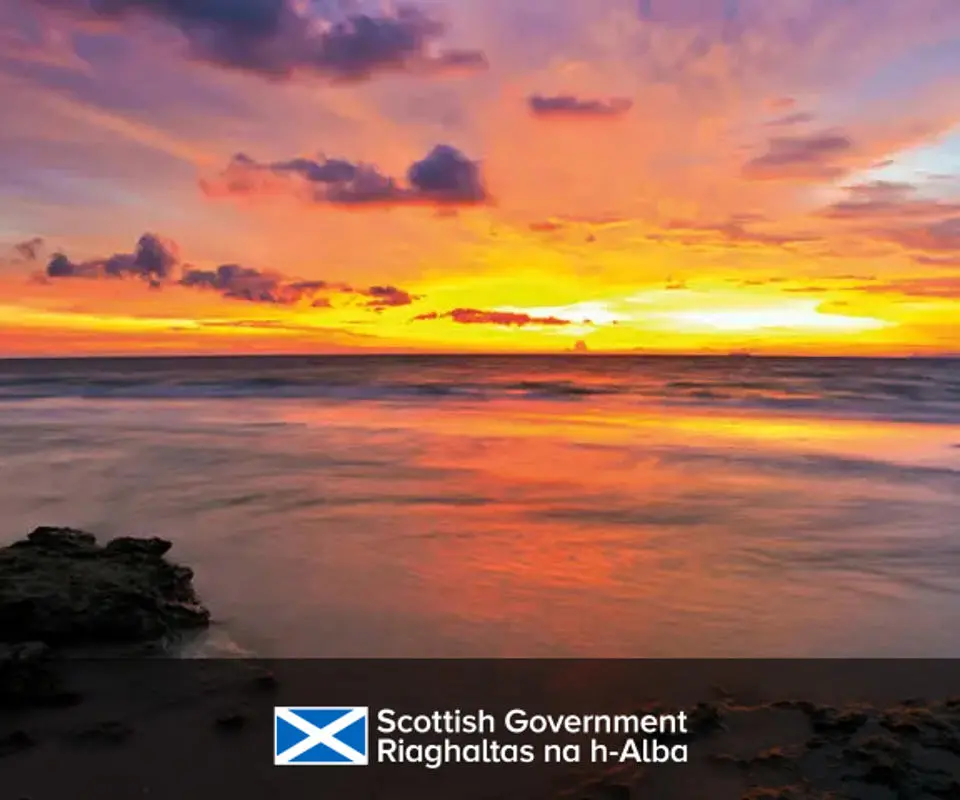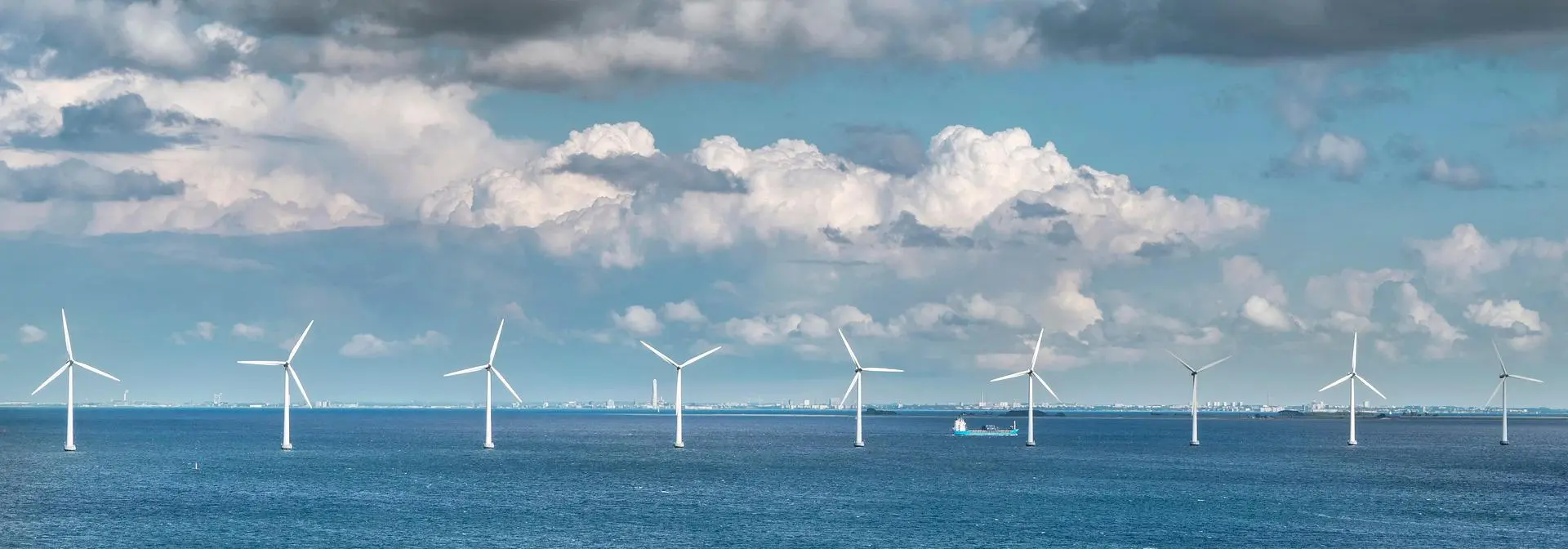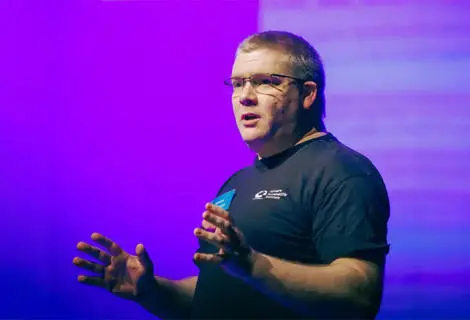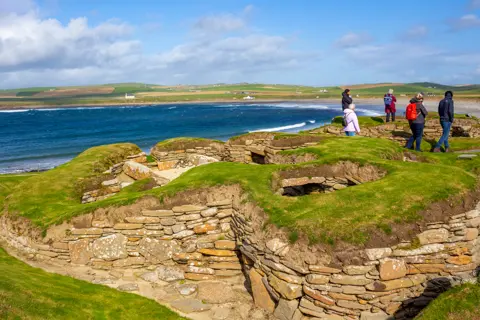Key information
- Level
- Postgraduate Taught
- Delivery type
- Full Time
- Degree qualification
- MSc
- Mode of delivery
- On-Campus
- Duration
- 1 year
- Location
- Orkney
- Start date
- September
MSc Marine Renewable Energy provides you with a comprehensive understanding of the marine energy sector, including the technical, environmental, and economic drivers which shape the industry. You’ll be involved in interdisciplinary teaching and learning to make a positive contribution in the development of sustainable marine renewable energy initiatives. The programme is suitable for those from a wide variety of academic backgrounds who want to work in the marine renewable energy industry.
You’ll become familiar with the key drivers and limitations of marine renewable energy technologies and their associated development processes. The curriculum focuses on three themes of environment, technology, and governance.
You’ll understand the marine environment, sources of energy, and consider potential environmental effects of marine energy development.
You’ll gain an awareness of the fundamental technology options for generating new marine renewable energy platforms and their limitations, including issues surrounding the storage of energy and the integration of marine energy into wider energy systems.
You’ll also explore the relevant policy, legislation and planning approaches, and understand the nature of energy markets and the economic instruments used to promote marine renewable energy through using financial appraisal tools for individual developments.
This career-focused master’s programme will develop your technical, scientific, and managerial abilities, and provide you with a specialist education to set you up to become a professional in a range of roles within marine renewable energy.

The Island Scholarship
The Island Scholarship, delivered in partnership with the Scottish Government and Orkney Islands Council, will help fund the tuition fees for both UK and International Students. The scholarship, subject to budget allocations, is expected to launch soon. In the meantime, we’re inviting students to register their interest — those who do will be the first to be contacted once the scholarship goes live.
Register interestYour student experience
Your learning will be informed by experts in renewable energy, environmental and social science, and transition engineering at the International Centre for Islands Technology (ICIT) in Stromness, Heriot-Watt University’s Orkney campus, which is part of Heriot-Watt’s School of Energy, Geoscience, Infrastructure and Society.
Your learning will be further enhanced by proximity to the Islands Centre for Net Zero (ICNZ) and the European Marine Energy Centre (EMEC). Collectively, current ground-breaking research is helping to navigate current challenges, and making progress in the development and delivery of new renewable and sustainable energy supply and end-use systems.
Heriot-Watt Orkney is one of the United Kingdom’s most stunning and unique university locations. Set in the picturesque harbour of Hamnavoe and Scapa Flow, for over 25 years the campus has supported a broad range of research, teaching, and consultancy activities within the marine, oil and gas, and fisheries sectors.
The research relevance of this postgraduate programme ensures your studies remain innovative and industry focused.
Go Global
There are currently no Go Global opportunities for this particular programme. However, other Go Global opportunities may be available. Please contact studywithus@hw.ac.uk for more information.
Course content
September Intake - Orkney
Year 1
Optional September
- Introduction to Marine Planning
- Environmental Processes
- Climate Change, Sustainability and Adaptation
- Oceanography
- Marine Resources and Sustainability
- Transition Engineering - Achieving zero carbon InTIME
- Economics of Renewable Energy
Optional January
- Integration of Renewable Technology
- GIS for Marine and Environmental Scientists
- Practical Skills in Marine Surveying
- Tropical and Coral Reefs: Monitoring and Management
- Energy Transition Lab
Mandatory May
- ILES Environment Dissertation
Mandatory September
- Marine Renewable Energy Technology
Mandatory January
- Renewable Technology Commercialisation
Disclaimer
The courses mentioned above may change between now and the time that you study. For more information, please view our Terms and Conditions.
Programme Video
Orkney Campus video
Fees and funding
| Status | Full Time |
|---|---|
| UK | £10,864 |
| International | £20,456 |
- Status: Your residency status is usually defined as the country where you have been ordinarily resident for the three years before the start of your course.
- International: 'International' includes applicants from European Union countries who do not hold Pre-Settled or Settled status in UK. (This does not include students from the Republic of Ireland - see above).
Additional information
All course costs are covered by the tuition fee. For students studying at the Orkney Campus this includes electronic versions of the course notes.
Students should budget additional funds sufficient to cover living expenses such as accommodation, travel to and from the university, food, clothing and leisure pursuits.
Financial support
Tuition fee loans of £5,500 are available to Scottish distance learning students on taught postgraduate courses. Full-time distance learning postgraduate students can also access a £4,500 living cost loan. Find out more from the Students Awards Agency Scotland (SAAS)
Scholarships and bursaries
Postgraduate scholarships and bursaries
We aim to encourage well-qualified, ambitious students to study with us and we offer a wide variety of scholarships and bursaries to achieve this. Over £6 million worth of opportunities are available in fee and stipend scholarships, and more than 400 students benefit from this support.
Postgraduate European Union Scholarship
Open to any student coming from an EU country, this scholarship is an automatically applied £5,000 fee reduction for a full-time postgraduate taught programme at Heriot-Watt University.
Entry requirements
We have standard entry requirements for all of our courses that you will have to meet.
Year 1
A minimum of honours degree at 2:2 or non-UK equivalent in any academic subject provided that it includes evidence of essay writing and use of critical thinking.
We welcome applications from international students and accept qualifications from around the world. Please refer to the entry requirements for your country for more details.
English language requirements
If your first language is not English, we'll need to see evidence of your English language ability.
The minimum English language requirement for entry to this programme is IELTS 6.0 (or equivalent) with no score lower than 5.5.
If you do not have IELTS 6.0, we offer a range of English language courses to help you meet the English language requirement for this programme prior to commencing your studies.
Please see our detailed English language requirements.
Why Heriot-Watt
We're the top university in Scotland for graduate outcomes which means that more of our graduates are employed or in postgraduate education than any other institution in the country and we ranked 5th in the UK.
We're also rated number one in the UK for CEO or MD roles, meaning more of our graduates go on to become CEOs or MDs than any other university in the whole of the UK. On top of that, we have beautiful campuses, across the globe, so you'll get a truly international education. Our Edinburgh Campus is home to Oriam, Scotland's National Sports Performance Centre combined with plenty of wellbeing resources, prioritising fitness and mental health for all students. Our Global Research Institutes look at solving real world issues such as climate change and saving our oceans as well as working on the next medical technological breakthrough and the future of AI and robots.
Employability
Marine planning, including spatial planning, is a fast-developing discipline of global interest with excellent employment prospects. It has the ambition to promote sustainable development of the Blue Economy and mitigate the effects of climate change. The international "Blue Growth Agenda" anticipates increasing economic activity and employment from maritime industries as diverse as offshore oil and gas, renewable energy, aquaculture, biotechnologies, artificial islands, deep sea mining and tourism. The increase in activity requires increased vigilance in marine protection and conservation.
Potential career paths
- Marine development companies
- Utilities
- Consultancies
- Governments
- Regulators
- NGOs
Student life
Explore facilities, and chat to staff and students











